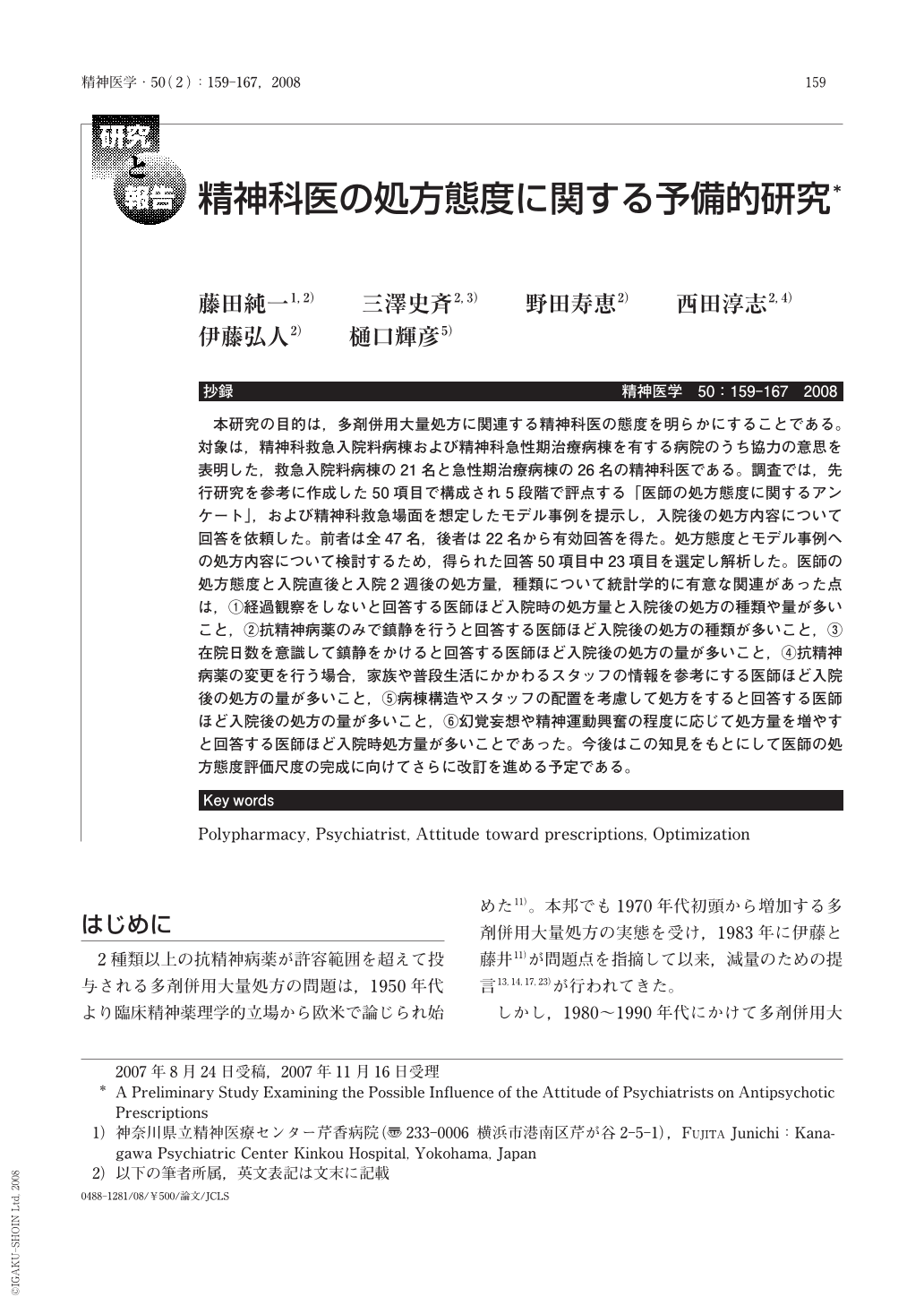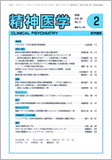Japanese
English
- 有料閲覧
- Abstract 文献概要
- 1ページ目 Look Inside
- 参考文献 Reference
抄録
本研究の目的は,多剤併用大量処方に関連する精神科医の態度を明らかにすることである。対象は,精神科救急入院料病棟および精神科急性期治療病棟を有する病院のうち協力の意思を表明した,救急入院料病棟の21名と急性期治療病棟の26名の精神科医である。調査では,先行研究を参考に作成した50項目で構成され5段階で評点する「医師の処方態度に関するアンケート」,および精神科救急場面を想定したモデル事例を提示し,入院後の処方内容について回答を依頼した。前者は全47名,後者は22名から有効回答を得た。処方態度とモデル事例への処方内容について検討するため,得られた回答50項目中23項目を選定し解析した。医師の処方態度と入院直後と入院2週後の処方量,種類について統計学的に有意な関連があった点は,①経過観察をしないと回答する医師ほど入院時の処方量と入院後の処方の種類や量が多いこと,②抗精神病薬のみで鎮静を行うと回答する医師ほど入院後の処方の種類が多いこと,③在院日数を意識して鎮静をかけると回答する医師ほど入院後の処方の量が多いこと,④抗精神病薬の変更を行う場合,家族や普段生活にかかわるスタッフの情報を参考にする医師ほど入院後の処方の量が多いこと,⑤病棟構造やスタッフの配置を考慮して処方をすると回答する医師ほど入院後の処方の量が多いこと,⑥幻覚妄想や精神運動興奮の程度に応じて処方量を増やすと回答する医師ほど入院時処方量が多いことであった。今後はこの知見をもとにして医師の処方態度評価尺度の完成に向けてさらに改訂を進める予定である。
Objectives:We conducted a questionnaire survey to examine associations between antipsychotic prescriptions and psychiatrists' attitudes concerning prescriptions. Method:Participants were 47 psychiatrists in 21 emergency psychiatry wards and 26 acute psychiatric wards. We asked participants to complete both a 50-item questionnaire to show their attitudes toward antipsychotic prescription and a vignette prescription for patiens with schizophrenia in the acute phase. Results:Of the 50 items, 23 were regarded as feasible items by participants and our research group members. Analysis of 22 participants who completed both the questionnaire and the vignette revealed that antipsychotics were prescribed at a significantly higher rate by psychiatrists (1) who were not likely to monitor the course when the patient/family wanted to increase the dose, (2) who always chose antipsychotics for sedation, (3) who increased the dose of antipsychotics for early sedation to shorten the length of stay, (4) who considered information from healthcare staff concerning the patient's family and daily life at the change resulting from antipsychotics, (5) who prescribed antipsychotics by considering hospital structures and staffing, and (6) who used more antipsychotics if the patient's psychotic symptoms at the initial assessment were more severe. Conclusions:Our results suggest that psychiatrists' prescription habits and perceptions of organizational factors and the conditions of the patients influence their actual prescriptions of antipsychotics.

Copyright © 2008, Igaku-Shoin Ltd. All rights reserved.


